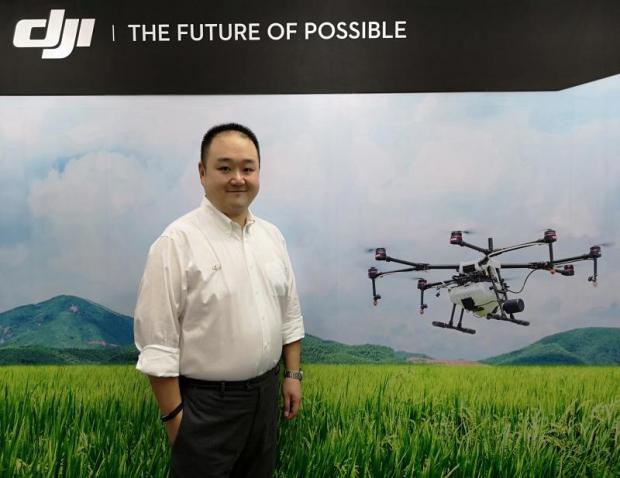
DJI, the Shenzhen-based drone maker, is expanding its agriculture drones in Thailand, making it the first Southeast Asian country to use the machines to deal with the worker shortage in the farming sector.
Agriculture in Thailand mostly consists of small-scale farms (a half-hectare or 3.125 rai), which contributes 10-12% to the country's GDP and employs one-third of the labour force, said Jiadong Sun, head of international agriculture sales at DJI.
Thailand is the world's second-largest rice exporter, but the farming demographic is ageing as those 30 or younger are not interested in this work because they are afraid of chemical exposure.
"The drone is a crucial tool to solve the labour shortage challenge and may draw the new generation to work in this sector, which has already happened in China," Mr Sun said.
He said DJI started offering its agricultural drones in the home country, with startups and young entrepreneurs finding that the tool offered them a new business opportunity in training farmers how to use them.
In China, DJI has 2,000 drone agriculture service providers using 16,000 DJI drones spraying 6 million hectares. Some drone service operators can break even within six months, Mr Sun said.
DJI also has agriculture drone sales in Japan and South Korea.
To capitalise on the farming sector, DJI recently introduced the MG-1P agriculture drone, a high-performance aircraft, at the AGRI Technica Asia Exhibition in Thailand.
The new model has a single controller that can manage up to five drones, saving on the costs of human control, as the previous model could control only one.
The transmission range of up to three kilometres enables the drones to complete tasks 60 times faster than humans. Tasks that took 2-3 days for human labour can be finished within 2-3 hours with a drone, part of the automation and precision farming trend.
The new drone will be available in early October through distributors and dealers.
Kevin On, communications director of DJI Global, said overseas revenue accounted for 80% of the total, and Thailand is a strategic market for consumer and agricultural drones.
"Agricultural drones can bring greater opportunities for individual farmers, increasing their productivity while minimising health risk," he said. "DJI is willing to work with commercial firms to customise drones for local needs."